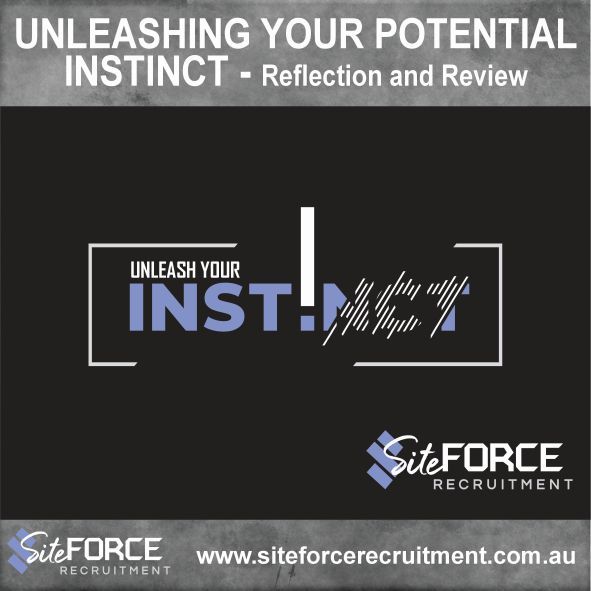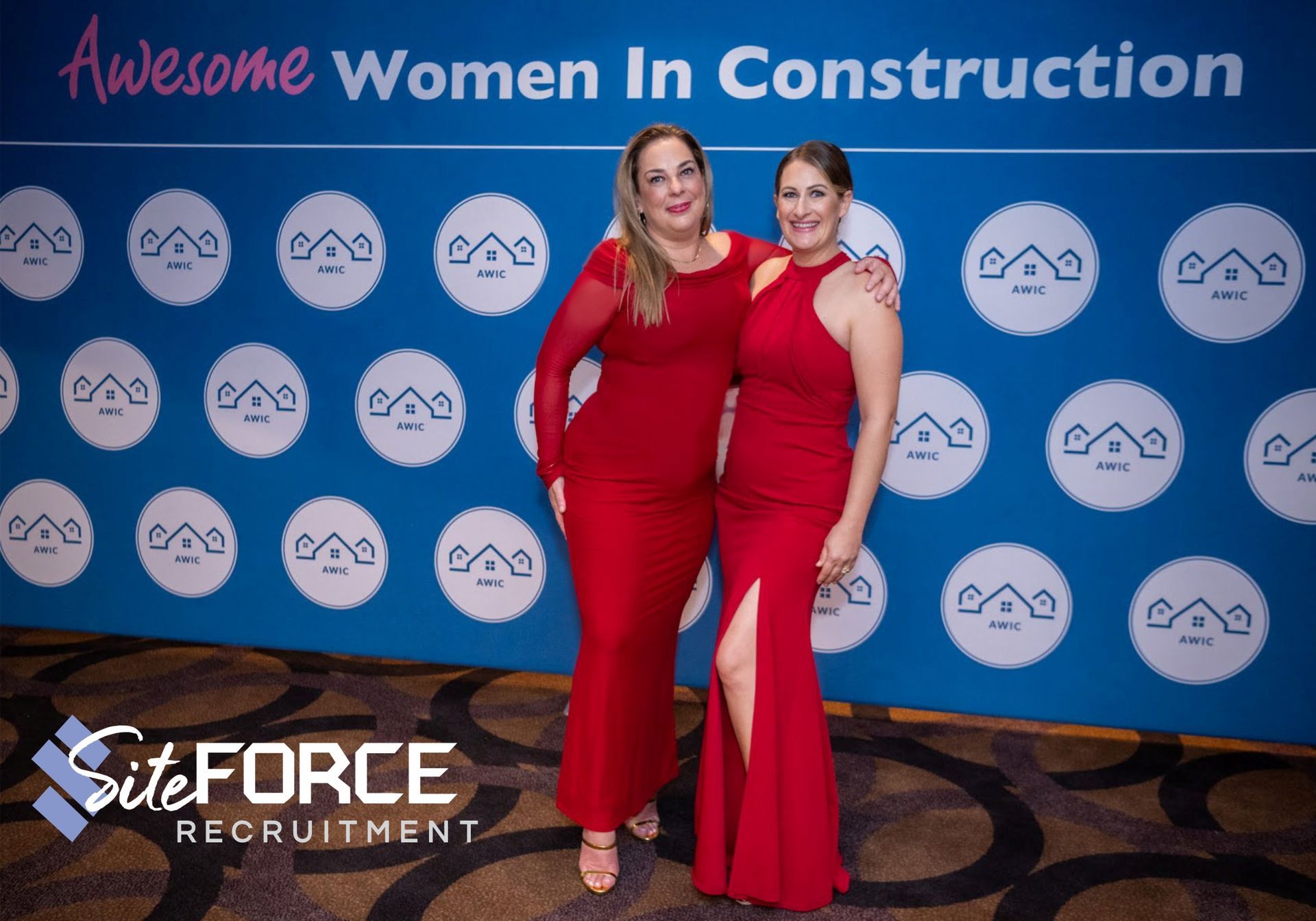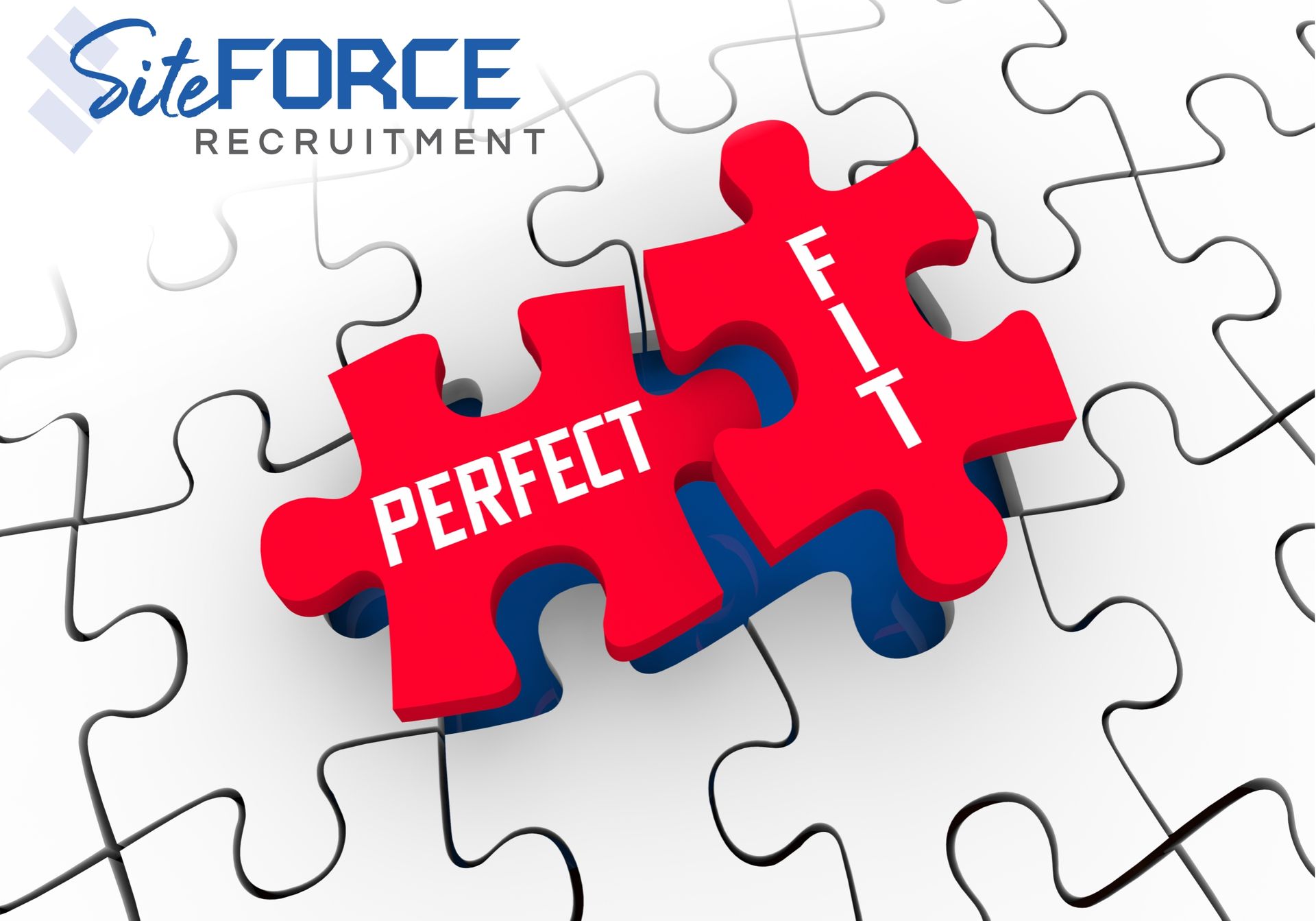UNLEASH YOUR POTENTIAL – INSTINCT
The Power of Reflection and Review

I am often asked what soft skills are required for success these days. It used to be emotional intelligence (EQ) which is the ability to recognise, understand, and manage one’s own emotions, as well as to perceive and influence the emotions of others. EQ involves skills such as self-awareness, self-regulation, empathy, and social skills, which help individuals navigate social complexities and make more informed decisions.
However, today it has progressed to also having a Refined Instinct, an intuitive understanding or gut feeling that comes from experience and processing, where someone has committed to a reflection and review of their decisions and experiences in their life. It builds an innate and developed sense of what feels right or what might happen based on past experiences and decisions or values made from those, often on a subconscious level. This instinct is fast.
While both involve a degree of emotional and social awareness, emotional intelligence encompasses a set of skills and strategies for interacting with others and managing one's emotions, whereas refined instinct is more about personal intuition and perception built from the process of reflection and review. Combined, these are powerful and crucial to lasting success.
EQ and Refined Instinct In Construction
In construction, we operate in a world where rapid decision-making and quick responses often dominate, taking the time to review and reflect on our decisions and choices might seem like a luxury we can’t afford.
Yet, this seemingly simple practice of review and reflection holds profound significance for developing our instincts and overall success. At its core, reviewing decisions is more than just an exercise in hindsight—it's a powerful tool that can transform how we understand ourselves and navigate our personal and professional lives.
It is something that I’ve implemented for many years, in both my personal and professional life. The commitment to reflecting and reviewing all areas of my life, pinpointing and understanding the why of what went well and what didn’t and then nailing those little increments that change the trajectory of something into a successful one.
This practice is what I put down to developing a high level of instinct to make the right hire – whether that is a quick decision made if someone is suitable for an immediate labour hire placement, or a highly skilled crucial placement of a permanent employee. Matching the right person to the right job is my expertise. And without being boastful, I am very good at it. The most common compliment I get is that I change the world for the better for those I work with.
This article delves into the science behind developing your Refined Instinct, cultivating higher emotional intelligence, and achieving greater success. We will explore how these practices affect the brain, enrich our emotional understanding, and ultimately empower you to thrive in various aspects of life. You will uncover the transformative impact of looking back to move forward with greater clarity and purpose.
What the Research Says
Timely decision-making and effective communication are crucial for success. Research shows that these companies not only make faster, more informed decisions but also execute them more consistently than their less successful counterparts (Harrison & McKinnon, 1999). By prioritising strong teams, leaders can better seize opportunities and propel their organisations toward greater achievements.
In high-performing teams and companies, reflection and review are standard when reviewing project processes. I would suggest that it is also a key tool to build into personal and professional development so the company’s biggest assets, their people, benefit from developing and honing their instinct.
EQ, Refined Instinct and High Performing Teams
You’ve all seen, or been a part of, some amazing teams yourself. When this happens, it is both wonderful - and profitable. I am truly grateful for the team I work with at SiteForce Recruitment, who I believe are exceptional talent. We all just ‘get’ each other, all work to be emotionally balanced, love a bit of fun, want the best for each other and the company, and independently perform at high levels.
While it's possible to drive team performance through pressure, this approach rarely fosters a sustainable, high-functioning team. Instead, it often leads to burnout and resignations, with talented candidates increasingly avoiding such workplaces. When recommending a company to potential candidates, highlighting a positive culture and the existing team member’s long-term commitment is a significant advantage in attracting top talent.
High-performing teams that choose to stay together are rarely formed by chance. Members of these teams are usually committed to reflection, review, and personal development. They recognise that a company's success depends on both the emotional intelligence (EQ) and Refined Instinct of its teams. In such cultures, personal development is actively encouraged, and transparency, honesty, and constructive feedback are essential. This environment fosters a supportive atmosphere where team members are positively motivated and empowered to grow.
NeuroScience, Mindfulness and Refining Your Instinct
Recent advancements in neuroscience reveal that reviewing and reflecting on our decisions engages crucial brain areas involved in emotional regulation and self-awareness. By systematically examining our past choices, we can fine-tune our instincts, enhance our emotional intelligence, and pave the way for future success. This process not only helps in understanding the outcomes of our decisions but also in learning from our experiences, thereby sharpening our ability to make informed and intuitive choices moving forward.
As we build a reservoir of high level knowledge, our decisions are quicker and more automatic – we develop a high level of accuracy in our instinct. In recruitment I say, we “instinctivize our hiring decisions” .
Neuroscience Today
Neuroscience provides valuable insights into how reviewing decisions can enhance emotional quotient (EQ). Here’s a summary of what current research reveals:
- Self-Reflection and Emotional Awareness:
Neuroscience indicates that self-reflection, which is a crucial component of reviewing decisions, plays a significant role in emotional awareness and regulation. According to a study by Kross et al. (2014), self-reflection helps individuals gain better control over their emotions and decision-making processes. The study found that "self-reflection enables individuals to evaluate their emotional experiences more effectively, leading to better emotional regulation and decision-making." - Neuroplasticity and Emotional Regulation:
Reflection and reviewing decisions regularly can influence neuroplasticity, which is the brain's ability to reorganise itself by forming new neural connections. Research by Davidson and Lutz (2008) highlights those practices such as mindfulness, which often accompany reflection and decision review processes, can lead to structural changes in the brain that enhance emotional regulation. They state, “Meditation practices can lead to changes in brain areas related to emotion regulation and self-control, suggesting that regular self-reflection can similarly impact these neural pathways.” - Role of the Prefrontal Cortex:
The prefrontal cortex, responsible for complex decision-making and emotional regulation, is highly involved when individuals reflect and review their decisions. Damasio (1994) explains that this brain region integrates emotional signals to guide decision-making. He notes, “The prefrontal cortex integrates emotional feedback, which is crucial for making decisions that align with our values and goals.” - Impact of Self-Compassion:
According to Neff (2011), self-compassion, which can be cultivated through reflection and decision review processes, is linked to improved emotional intelligence. Neff explains, "Self-compassion involves recognising and accepting one’s emotional experiences without self-judgment. This practice enhances emotional resilience and helps in developing a more balanced emotional response." - Learning from Experience:
Research by Gordon et al. (2017) underscores the importance of learning from past experiences through reflection and decision review. The study asserts, “Reviewing past decisions allows individuals to learn from their experiences, which improves their emotional awareness and decision-making skills over time.”
By incorporating these neuroscientific insights, one can understand how reflection and reviewing decisions not only aids in emotional regulation but also enhances overall emotional intelligence, develops better decisions over time and hones and refines your instinct.
Mindfulness Mumbo Jumbo or Brain Science?
When I speak to people about being mindful, some are right onto it, and some are doubtful, like it is just new age mumbo jumbo. So if the word ‘mindfulness’ doesn’t grab your fancy, you could just use “brain science”, but in the end, it is the same thing – committing some time to reflection and decision review and refining your instinct. Other common words for the process are “Neuro Science”, “Cognitive Science”, “Neurobiology”.
According to neuroscientific research, mindfulness can positively affect brain areas linked to emotion regulation and decision-making (Davidson & Lutz, 2008). By honing these skills, we can enhance our decision-making processes and overall well-being.
Why Review Your Decisions?
Reflecting and reviewing your decisions helps assess their quality and effectiveness. This practice reveals strengths, weaknesses, biases (unconscious or not), and assumptions, providing insights into your values, goals, emotions, and motivations. By reviewing decisions, you can learn from experiences, celebrate achievements, address challenges, and refine future strategies. Neuroscience supports this practice; studies show that reflecting on past decisions can enhance cognitive flexibility and improve future decision-making (Kross et al., 2014).
How to Review Your Decisions
One effective method for reviewing decisions is the RAIN model, which stands for Recognise, Allow, Investigate, and Nurture. Begin by:-
R: recognising the decision and its outcome honestly.
A: allow yourself to experience and acknowledge the emotions tied to the decision without avoidance; then next
I: investigate the decision with curiosity, questioning and analysing it kindly; and finally:
N: nurture yourself with compassion and gratitude for your efforts and achievements.
This approach aligns with findings in neuroscience, which indicate that including self-compassion as a step can enhance emotional resilience and decision-making quality (Neff, 2011).
When to Review Your Decisions
Reflection and reviewing decisions can be done at any time, but regular and systematic evaluations are particularly beneficial. Choose a frequency that suits you—daily, weekly, monthly, or quarterly—and select a format that fits your style, whether it be writing, speaking, or drawing. The key is to make it a consistent practice, as research indicates that routine reflection can improve decision-making effectiveness (Gordon et al., 2017).
How to SuperPower Your Instinct
New insights from neuroscience reveal that integrating emotions into decision-making can lead to better outcomes. Contrary to the old belief that emotions should be ignored, recent studies suggest that consciously engaging with our feelings can enhance decision quality (Damasio, 1994), and also enhances emotional intelligence by fostering self-awareness and allowing you to understand and manage your emotions more effectively whilst refining your instincts.
Know Your Core Values
Consciously examining your core values is invaluable for making informed decisions. When you take the time to reflect and review what truly matters to you, you create a clear framework for evaluating choices and resolving dilemmas. This intentional alignment with your core values ensures that decisions are not only rational but also resonate deeply with your personal principles and goals.
By grounding your decisions in your core values, you gain greater confidence and consistency in your choices, which can lead to more fulfilling and authentic outcomes. This practice not only simplifies complex decisions but also reinforces your EQ and Refined Instinct, guiding you towards decisions and actions that are congruent with who you are and what you stand for.
Our Superpower
Our leading 'superpower' is attracting and retaining quality team members who share our values of honesty, integrity, diligence, and service, allowing us to deploy quality team members on client sites quickly.
Our team member's superpower is being motivated, prepared and ready to enthusiastically contribute to the projects at hand, more than just a pair of hands.
Related articles:
Read other informative articles for both employers and workers at: https://www.siteforcerecruitment.com.au/blogs
Chantal Penny is the Director with Superpowers of SiteForce Recruitment. A thought leader in the industry, Chantal, based on her expertise and industry perspective, offers unique guidance, inspiration, and influence in the industry. Chantal Penny is also a thought leader in the industry with her Podcast, Talent Instinct, which is available at:
https://talentinstinctpodcast.libsyn.com/site
At SiteForce Recruitment, we specialise in labour-hire and permanent recruitment in the construction industry. We are committed to valuing people, safety and wellbeing, collaboration, trust and, of course – results!
CONNECT with us via our contact page or bookings links on our website if you are looking to recruit for, get your dream job, or join our amazing labour force team.











